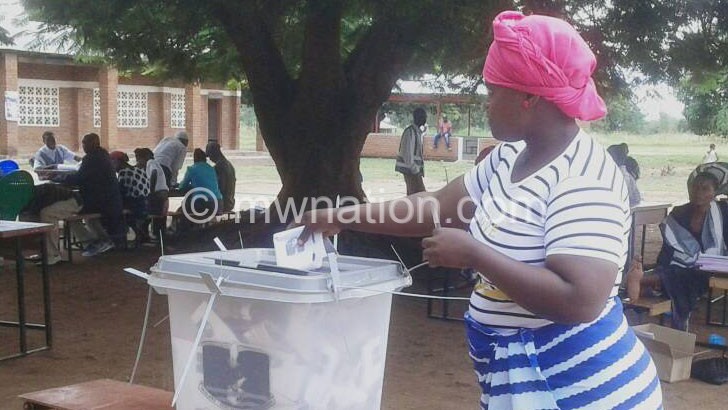Over 38 parties face the chop
Thirty-eight political parties face deregistration after December 1 this year for failing to participate in this year’s tripartite elections and conducting elective national conventions as per the requirement of the new Political Parties Act 2018.
The Act, which came into force on December 1 last year, empowers the Registrar of Political Parties to strike off the register any political party that does not comply with the requirements after a year from the day the Act came into force.

Fourteen of the 52 registered political parties are participating in the May 21 polls, according to a Malawi Electoral Commission (MEC) list of registered political parties.
The new Act also establishes the office of the Registrar of Political Parties (RPP), an office previously held under the Registrar General, to be appointed and confirmed by Parliament’s Public Appointments Committee.
But in the absence of the RPP, the Registrar General will continue to act as the RPP, according to the law.
President Peter Mutharika assented to the new law on January 24 2018, but it took almost 11 months for Minister of Justice and Constitutional Affairs Samuel Tembenu to set its commencement date.
According to our analysis, the registered parties that face deregistration for failing to comply with the new law include Congress for the Second Republic of Malawi (CSR), United Front for Multi-Party Democracy (UFMD), Malawi National Democratic Party (MNDP), Malawi Democratic Union (MDU), People’s Democratic Party (PDP) and Forum Party.
Others are Mass Movement for the Young Generation, National Solidarity Movement (NSM), Congress for National Unity (Conu), Pamodzi Freedom Party (PFP) and New Dawn for Africa Party.
The list also has Mtendere Ufulu Party (MUP), New Congress for Democracy (NCD), United Democratic Party (UDP), Malavi People’s Party (MPP), Congress of Democrats (Code), New Vision Democracy Party (NVDP) and African Nyasaland Party (ANC).
While some parties were cancelled on the register, others such as CSR, MDU and NSM, which were formed in the 1990s and 2000s, are long forgotten, but still appear on the register.
Chief assistant registrar general Joseph Kanyamula Chintolo confirmed that several other parties were cancelled in the register as per the old law but could not mention them.
On when his office would start biting on dormant parties, Chintolo said the Act gives a maximum period of one year in which political parties are supposed to comply with the requirements before an action could be taken on them.
“That means we will have to wait until one year elapses as per the law. So, it will be premature to say when [exactly] we are deregistering this or that party based on their not having met certain requirements,” he said.
Section 44 (1) of the Act stipulates that any registered political party deemed to have been registered under the Act shall, not later than one year, comply with it. However, Section 44 (2) mandates the registrar to deregister any registered political party that fails to comply with subsection (1) but before doing so, shall give notice in writing and give reasons to the party of the intention to deregister it.
MEC spokesperson Sangwani Mwafulirwa said while the law acknowledges any party that exists on the register of political parties to contest in any election, the commission does not have any details of over 24 political parties.
At the start of the campaign period in 2014 there were 54 political parties, out of which 23 collected nomination forms, but only 17 presented the forms to MEC.
And this year, 16 collected nomination forms for presidential elections, but only nine presented.
Political scientist George Phiri of the University of Malawi (Unima) observed that those parties which are not participating in the elections are illegitimate and as such they do not need to exist on the register.
“So, if any party does not participate in a general election, it effectively means it cannot secure the requirements and the law must apply,” he observed.
Chancellor College political scientist Mustafa Hussein said some political parties outside Parliament are inactive because people established them for personal gains and not to serve Malawians.
“If some parties had similar political ideologies, most of them would have simply combined. Unfortunately, they are based on personalities,” he said. n





